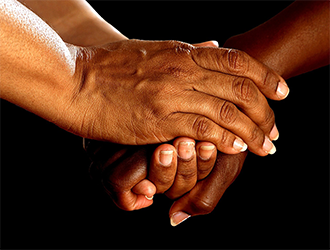Children, Youth and Families
Popular Courses

Strategies to Optimize Patient's Experiences in Healthcare Settings
This course is designed to improve interactions with patients in healthcare settings, whether in person or through other modalities (e.g., telephone, online). You will learn strategies relevant to behavioral healthcare within these settings and an overview of skills you can use to interact effectively with patients experiencing various symptoms and concerns.
View Details

Strategies to Optimize Patients' Experiences in Medical Care Settings
View Details

Stress Injury Mitigation Through Collective Self-Care
View Details

Suicide Prevention 101
View Details

Suicide Risk Assessment and Safety Planning for Children, Youth, and Families
In this course, participants will gain a better understanding of suicide risk assessment, prevention, and intervention for children and adolescents. Participants will learn how to recognize suicide risk factors and warning signs and how to speak with young people who are at risk. Participants will review suicide risk assessment strategies to increase comfortability when speaking with younger clients about suicide. The course will also include a discussion of Safety Planning Intervention (SPI) and additional evidence-based intervention strategies developed to reduce the risk of suicide in children and adolescents.
View Details

Supporting Relationships and Sexual Health in People with Intellectual & Developmental Disabilities
This course aims to equip participants with the knowledge and tools to provide relationship and sexual health support to individuals with Intellectual and Developmental Disabilities (IDD). By the end of the course, participants will be able to identify challenges faced by people with IDD in developing relationships and managing sexual health. They will learn to integrate support strategies addressing development, intimacy, consent, and safe internet practices.
Additionally, participants will identify relevant resources for assisting individuals with IDD and will develop a treatment considerations plan for educating them about engaging in healthy relationships and safe sexual activities.
View Details

Supporting Youth to Adulthood Transitions in People with Disabilities
View Details

Telebehavioral Health for American Indian and Alaska Native Populations
This course presents behavioral health providers with knowledge of the challenges, adaptations, and strategies for best practices when using telebehavioral health with Tribal and Native populations. Telebehavioral health (TBH) services are an emerging modality for providing behavioral healthcare that significantly benefits the treated population. This course will explain how these benefits are particularly salient among American Indian and Alaska Native (AI/AN) populations. You will learn that AI/AN populations are great candidates for TBH in certain circumstances. There are some instances where TBH is not a good fit as well. You will learn how virtual modalities can allow AI/AN populations to access healthcare that might not otherwise be easily accessible to them.
View Details

Telebehavioral Health for Children, Youth, and Families
This course presents behavioral health providers with knowledge of the challenges, adaptations, and strategies for best practices when using telebehavioral health with children, youth, and families. Telebehavioral Health (TBH) services are an emerging modality for providing behavioral healthcare that significantly benefits the treated population.
This course will explain how TBH services benefit children, youth, and families. You will learn that children, youth, and families are great candidates for TBH in certain circumstances. There are also some instances where TBH is not a good fit. You will learn how virtual modalities can allow children, youth, and families to access healthcare that might not otherwise be easily accessible to them.
View Details
